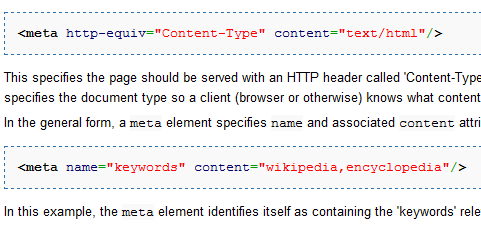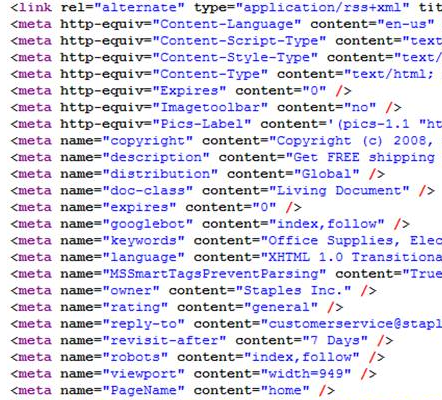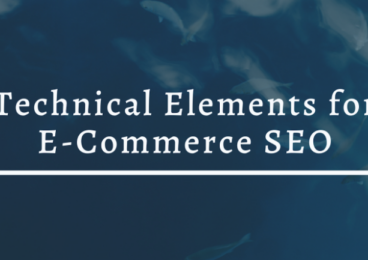 Reading Time: 5 minutes
Reading Time: 5 minutesThis is search engine optimization tip number thirteen in our continuing series of tips from search engine optimization company Vizion Interactive. All of our search engine optimization tips are very specific, should not take a long time to fix (or to check to see if you are following the search engine optimization best practices), and will be rather “short and sweet” and directly to the point.

If you have not been following along with all of our search engine optimization tips, you might want to take a look at some of the previous SEO tips that we have already talked about. Our last search engine optimization tip, tip number 12, I talked about the text surrounding your links. Then, in SEO Tip number 11, I talked about using keywords in your heading tags. These are important because using a H1 tag will give more “weight” to the heading and the keyword phrase you’re targeting on that page. In the SEO tip before that, search engine optimization tip number ten, we talked about checking your links on your site to make sure you are not linking out to any bad neighborhoods or other sites that you do not wish to continue to link to. In SEO tip number nine, we talked about linking out to web sites. In search engine optimization tip number eight, we talked about Alt Tags and how you need to make sure that your keywords are in your Alt Tags and that they need to describe specifically what the image is and what someone will see when they look at it. Previously, before that, we talked about the anchor text of internal links. Then, before that, we talked about having keyword in your urls, linking to your home page, the meta keywords tag, the keywords on your web page, the meta description tag, and your web page’s title tag. All of these “search engine optimization tips” are things I look at when analyzing a site or optimizing it for the search engines. Keep in mind, though, that this is only the beginning. There are a lot more search engine optimization tips coming.
For search engine optimization tip number thirteen, let’s talk about removing unused meta tags from your web pages. It is recommended that you remove meta tags from your web pages that are not recognized by the search engines, not officially recognized, or are just not needed anymore.
There was a period of time (in the mid to late 1990s?) that some meta tags like the “robots” beta tag and the “copyright” and other meta tags that I just have not heard of before: like the “pagename” meta tag.
At this point, there are really only two meta tags that should be on all web pages of your web site, the meta description tag and the meta keywords tag. There are a few others, including the “verify” meta tag that Yahoo! and Google (through Google Webmaster Tools) gives you to verify that you own your web site. But, those are some of the exceptions here. The verify meta tag really only needs to be on the site long enough for you to “verify your site”. Then, as far as I am concerned, it can be removed.
For other web design and web site compliance reasons, there are also some meta tags that should also appear along with the meta description and the meta keywords tags. That includes the “content-language” (what language the site is in…English, Spanish, Portuguese, etc.) and the “language” meta tag, which indicates the language of the page (e.g., XHTML 1.0 Transitional). So, what are the meta tags that you can remove from your web site? The ones that are completely useless for Search Engine Optimization purposes? Let’s take a look at www.Staples.com, a popular office supply store’s web site.

On the Staples.com home page, I see a whopping 16 meta tags. And I just mentioned three or four meta tags that are acceptable and recommended. If any of these meta tags are on your web site I highly recommend that you remove them right away. They’re just not needed and are generally not used anymore by any search engine that I’m aware of:
- meta copyright tag
- meta distribution tag
- meta doc-class tag
- meta expires tag
- meta googlebot tag
- meta mssmarttagspreventparsing tag
- meta owner tag
- meta rating tag
- meta reply-to tag
- meta revisit-after tag
- meta robots tag (only recommended if you want to stop search engines from indexing
- meta viewport tag
- meta pagename tag
I could go on and on and on about meta tags that I have seen on web sites that are just not needed. I actually remember seeing a meta “google rank” tag that was on someone’s web site: apparently there was a rumor going around that if you added the meta name =” google rank” >content = “1” to your web pages that you would rank number one in Google.
Of the meta tags that I’ve mentioned that are on the Staples.com home page, there are a few that I would like to emphasize. The Googlebot meta tag indicates that you want Googlebot, Google’s search engine spider, to do something. I can assure you that Googlebot will crawl your web site even if you do not have that meta tag on your web site. I also recommend that you remove any meta tags that indicate when your content “expires” or how often it is updated.
There also is no need to tell the search engines for “follow” your links on your web site: you only need to tell them if you do NOT want them to index a web page. For example, there really is no need to add a “index,follow” tag on the web page. You would only want to tell search engines to “noindex,nofollow” or “noindex,follow”. If you’re telling them to index a web page, then I would remove the meta tag altogether.
By taking a look at your meta tags and removing the meta tags that are completely useless and not needed, you will “clean up your code”. You’ll make your web page load faster (there’s less content to load). In fact, the search engines like “cleaner code” than html code that has a lot of extra “stuff” in it that can either be removed from the page altogether or moved to an external file (e.g., move javascript to an external file, move your styles to an external .css file).
Take a look at your meta tags. Are there any that can be removed?
At Vizion Interactive, we have the expertise, experience, and enthusiasm to get results and keep clients happy! Learn more about how our SEO Audits, Local Listing Management, Website Redesign Consulting, and B2B digital marketing services can increase sales and boost your ROI. But don’t just take our word for it, check out what our clients have to say, along with our case studies.




